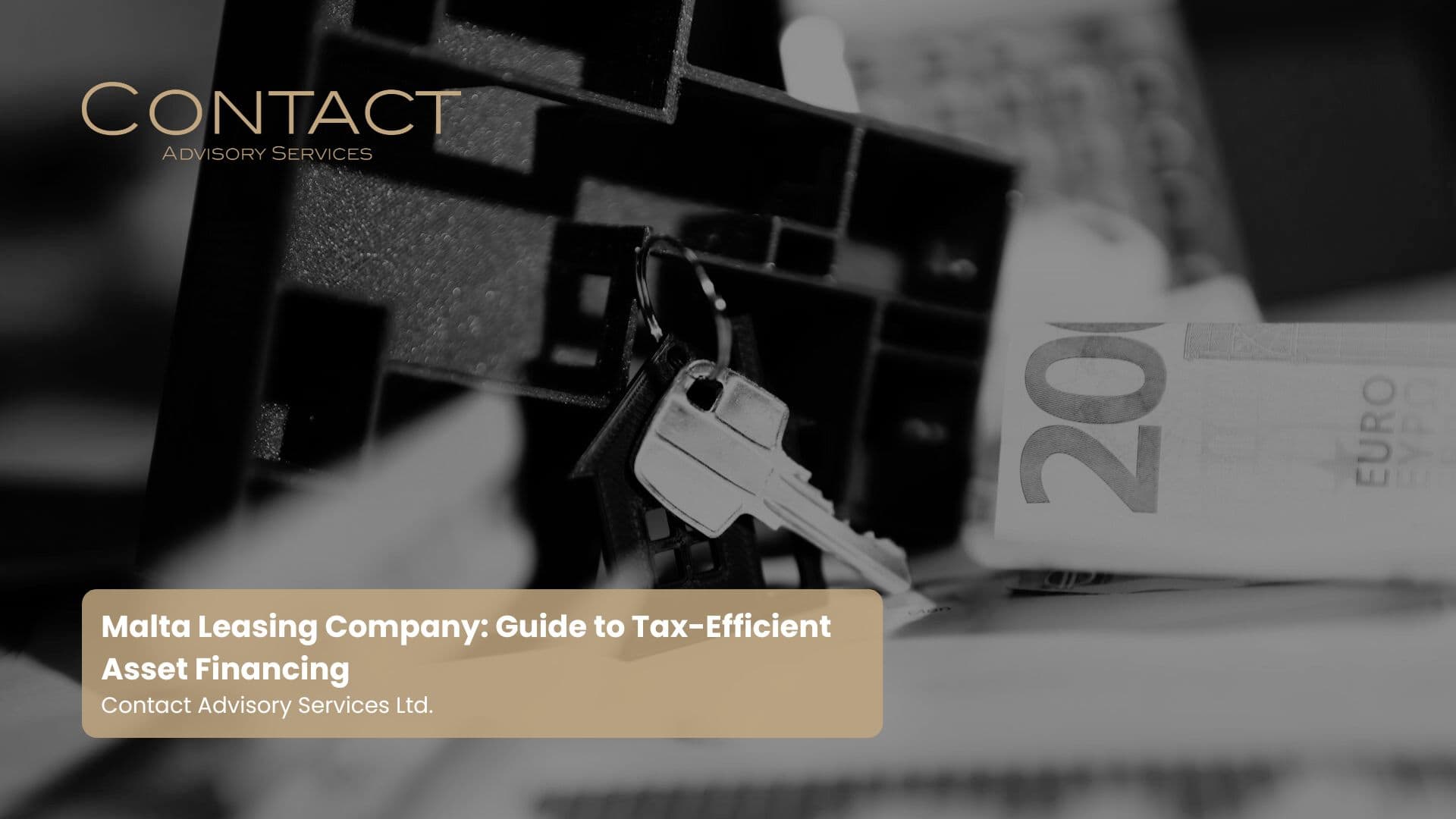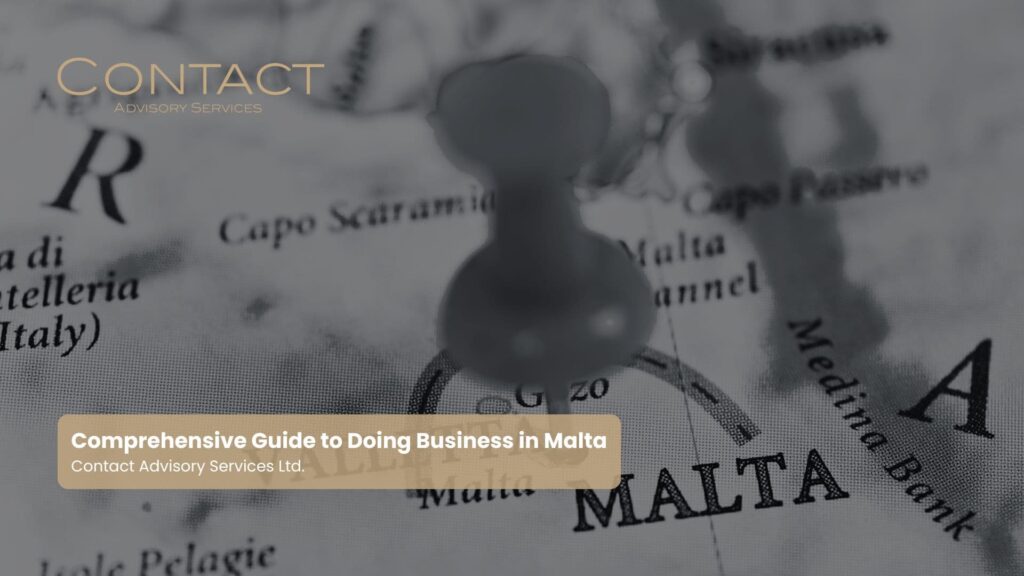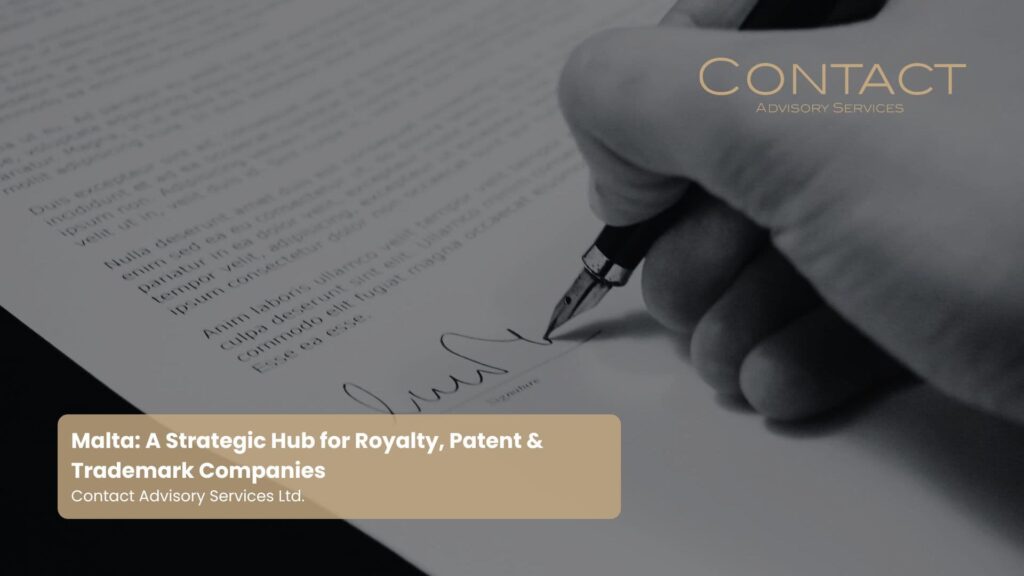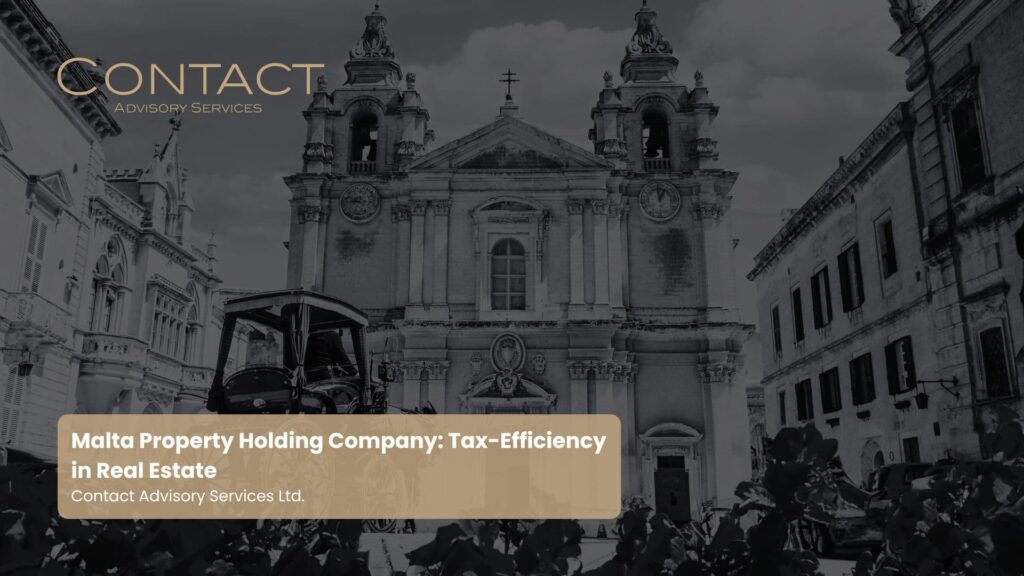Did you know that businesses can significantly reduce their tax burden and unlock access to global markets by strategically using leasing arrangements? A Malta leasing company offers precisely this advantage, providing a tax-efficient and flexible structure for acquiring and leasing assets internationally.
This comprehensive guide will delve into the world of Malta leasing companies, exploring the benefits, setup process, operational considerations, and tax planning strategies. Whether you’re in aviation, maritime, manufacturing, or any other industry requiring substantial capital expenditure, this article will equip you with the knowledge to make informed decisions about establishing and managing a Malta leasing company.
Why Choose Malta for Your Leasing Company?
Malta presents a compelling case as a jurisdiction for leasing companies, offering a unique blend of tax advantages, access to international markets, and a supportive business environment.
Malta’s Attractive Tax Regime for Leasing Companies
Malta’s tax system is designed to attract businesses, and leasing companies are no exception. Key benefits include:
- Capital Allowances: Malta offers generous capital allowances on qualifying assets, allowing leasing companies to deduct a portion of the asset’s cost from their taxable income each year. This significantly reduces the tax burden and enhances profitability.
- Tax Deductions: Various expenses related to leasing operations, such as interest on loans, maintenance costs, and insurance premiums, are tax-deductible, further reducing the taxable income.
- Tax Refunds: In certain cases, Malta leasing companies may be eligible for tax refunds, providing an additional incentive for businesses to establish their leasing operations in Malta.
- Double Taxation Treaties: Malta has an extensive network of double taxation treaties with over 70 countries. These treaties prevent double taxation on income earned from leasing activities in those countries, making cross-border leasing more attractive.
Access to International Markets
Malta’s strategic location in the Mediterranean provides a gateway to European, African, and Middle Eastern markets. This, coupled with a robust legal framework that supports cross-border transactions, makes it easy for Malta leasing companies to conduct business internationally. Whether you’re leasing aircraft to an airline in Asia or equipment to a manufacturer in Europe, Malta provides the ideal platform for global reach.
EU Membership and Regulatory Framework
Malta’s membership in the European Union offers significant advantages for leasing companies. Access to the EU single market allows for the free movement of goods and services, simplifying cross-border leasing operations. Additionally, Malta benefits from harmonized EU regulations, providing a stable and predictable legal environment for businesses. The Maltese legal framework for leasing activities is comprehensive and offers strong protection for both lessors and lessees.
Supportive Business Environment
Malta boasts a supportive business environment with a wide range of professional services, including legal, accounting, and tax advisory firms, that cater to the needs of leasing companies. The island also has a well-developed financial sector with numerous banks and financial institutions offering specialized leasing solutions and financing options. Furthermore, Malta’s modern infrastructure and skilled workforce provide a solid foundation for leasing operations.
Setting Up a Malta Leasing Company
Establishing a leasing company in Malta is a straightforward process, guided by clear regulations and procedures.
Legal Structures for Leasing Companies in Malta
Malta offers various legal structures for setting up a leasing company, the most common being:
- Limited Liability Company (LLC): This is the most popular choice for leasing companies due to its limited liability protection and flexible ownership structure.
- Partnership: Partnerships may be suitable for smaller leasing operations or joint ventures between investors.
Choosing the right legal structure depends on factors like the size and scope of your leasing activities, the number of investors involved, and your desired level of control and liability. Consulting with a legal professional can help you determine the best option for your specific needs.
Registration and Licensing Procedures
Registering a leasing company in Malta involves the following steps:
- Choose a Company Name: Select a unique name that complies with Malta’s naming regulations.
- Draft the Memorandum and Articles of Association: These documents outline the company’s purpose, structure, and internal rules.
- Appoint Directors and Shareholders: Choose the individuals or entities who will manage and own the company.
- Establish a Registered Office: Designate a physical address in Malta where official correspondence will be received.
- Submit the Application: File the necessary documents and pay the registration fees to the Malta Business Registry.
While generally no specific license is required for basic leasing activities, if your operations involve regulated assets or financial services, you may need to obtain licenses from the Malta Financial Services Authority (MFSA) or other relevant authorities.
Acquiring Assets for Leasing
Malta leasing companies can acquire assets through various methods:
- Direct Purchase: The leasing company purchases the asset outright and then leases it to the lessee.
- Sale and Leaseback: The leasing company purchases an asset from a business and then leases it back to the same business. This allows the business to free up capital while retaining use of the asset.
- Finance Lease: The leasing company acquires an asset specifically for leasing to a particular lessee, with the lessee having significant control over the asset’s specifications.
Each method has different tax implications, and it’s crucial to choose the most advantageous option for your specific circumstances.
Operational Aspects of a Malta Leasing Company
Once your Malta leasing company is established, you need to consider various operational aspects to ensure smooth and efficient operations.
Leasing Agreements and Contractual Terms
Leasing agreements are the foundation of any leasing operation. They should clearly outline the terms and conditions of the lease, including:
- Lease Term: The duration of the lease agreement.
- Payment Schedules: The frequency and amount of lease payments.
- Maintenance Responsibilities: Who is responsible for maintaining the leased asset.
- Insurance: Insurance requirements for the asset.
- Termination Clause: Conditions under which the lease can be terminated.
It’s crucial to draft comprehensive and legally sound leasing contracts to protect the interests of both the lessor and the lessee. Seeking legal advice is recommended to ensure that your contracts are compliant with Maltese law.
Managing Lease Portfolios
Effectively managing a portfolio of lease agreements is essential for the success of a leasing company. This involves:
- Tracking Payments: Maintaining accurate records of lease payments and ensuring timely collection.
- Monitoring Asset Utilization: Tracking the usage and condition of leased assets to optimize their lifespan and value.
- Handling Lease Renewals: Managing lease renewals and negotiating new terms with lessees.
Using lease management software can streamline these processes and improve efficiency.
Risk Management and Insurance
Leasing activities involve inherent risks, such as:
- Asset Depreciation: The value of leased assets depreciates over time.
- Default Risk: Lessees may default on their lease payments.
- Legal Disputes: Disputes may arise between the lessor and lessee regarding the lease agreement.
Mitigating these risks is crucial. Leasing companies can use insurance policies to protect against asset damage and default risk. Conducting thorough due diligence on lessees before entering into lease agreements can also help minimize default risk. Finally, having well-drafted lease agreements and seeking legal advice when necessary can help prevent and resolve legal disputes.
Tax Planning and Compliance for Malta Leasing Companies
Optimizing your tax strategy is crucial for maximizing the benefits of a Malta leasing company.
Capital Allowances and Tax Deductions
Malta offers attractive capital allowances on leased assets, allowing companies to deduct a portion of the asset’s cost from their taxable income each year. The specific allowances vary depending on the type of asset and its useful life. Additionally, various expenses related to leasing operations, such as interest on loans, maintenance costs, and insurance premiums, are tax-deductible.
Sale and Leaseback Arrangements
Sale and leaseback arrangements can be particularly advantageous in Malta. This involves a company selling an asset to a leasing company and then leasing it back. This frees up capital for the seller while allowing them to continue using the asset. From a tax perspective, the seller can claim capital allowances on the sale, while the leasing company can claim deductions on the lease payments.
Accounting and Reporting Requirements
Malta leasing companies must maintain accurate accounting records and comply with reporting obligations. This includes preparing annual financial statements and filing tax returns within specified deadlines. Staying informed about the latest accounting standards and tax regulations is essential to ensure compliance and avoid penalties.
FAQs about Malta Leasing Companies
1. What types of assets can be leased through a Malta leasing company?
A wide range of assets can be leased, including:
- Aircraft
- Vessels
- Vehicles
- Machinery
- Equipment
- Real Estate
- Intellectual Property
2. What are the benefits of using a sale and leaseback arrangement in Malta?
Benefits include:
- Freeing up capital for the seller.
- Tax advantages for both the seller and the leasing company.
- Continued use of the asset for the seller.
3. How is the lease income taxed in Malta?
Lease income received by a Malta leasing company is subject to Malta’s corporate income tax rate. However, various deductions and allowances can significantly reduce the taxable income.
4. What are the VAT implications of leasing activities in Malta?
VAT applies to lease payments in Malta. However, certain exemptions and special schemes may apply depending on the type of asset and the lessee’s location.
5. What are the advantages of using a professional services provider for setting up and managing a Malta leasing company?
Professional service providers can assist with:
- Company formation and registration.
- Tax planning and compliance.
- Drafting lease agreements.
- Managing lease portfolios.
- Ensuring compliance with all applicable regulations.
Conclusion
A Malta leasing company offers a compelling solution for businesses seeking tax-efficient asset financing and access to international markets. By leveraging Malta’s favorable tax regime, strategic location, and supportive business environment, leasing companies can optimize their operations and achieve their business objectives.
Contact Us
If you’re considering setting up a Malta leasing company or want to explore the benefits of leasing in Malta, Contact Advisory Services Ltd. can help. As an MFSA authorized Corporate Services Provider, we offer comprehensive assistance with Malta company formation, tax planning, and ongoing compliance. Contact us today to learn more about how we can support your leasing operations in Malta.
Remember, this article is for informational purposes only and should not be considered legal or financial advice. It’s crucial to consult with qualified professionals for personalized guidance tailored to your specific circumstances.







